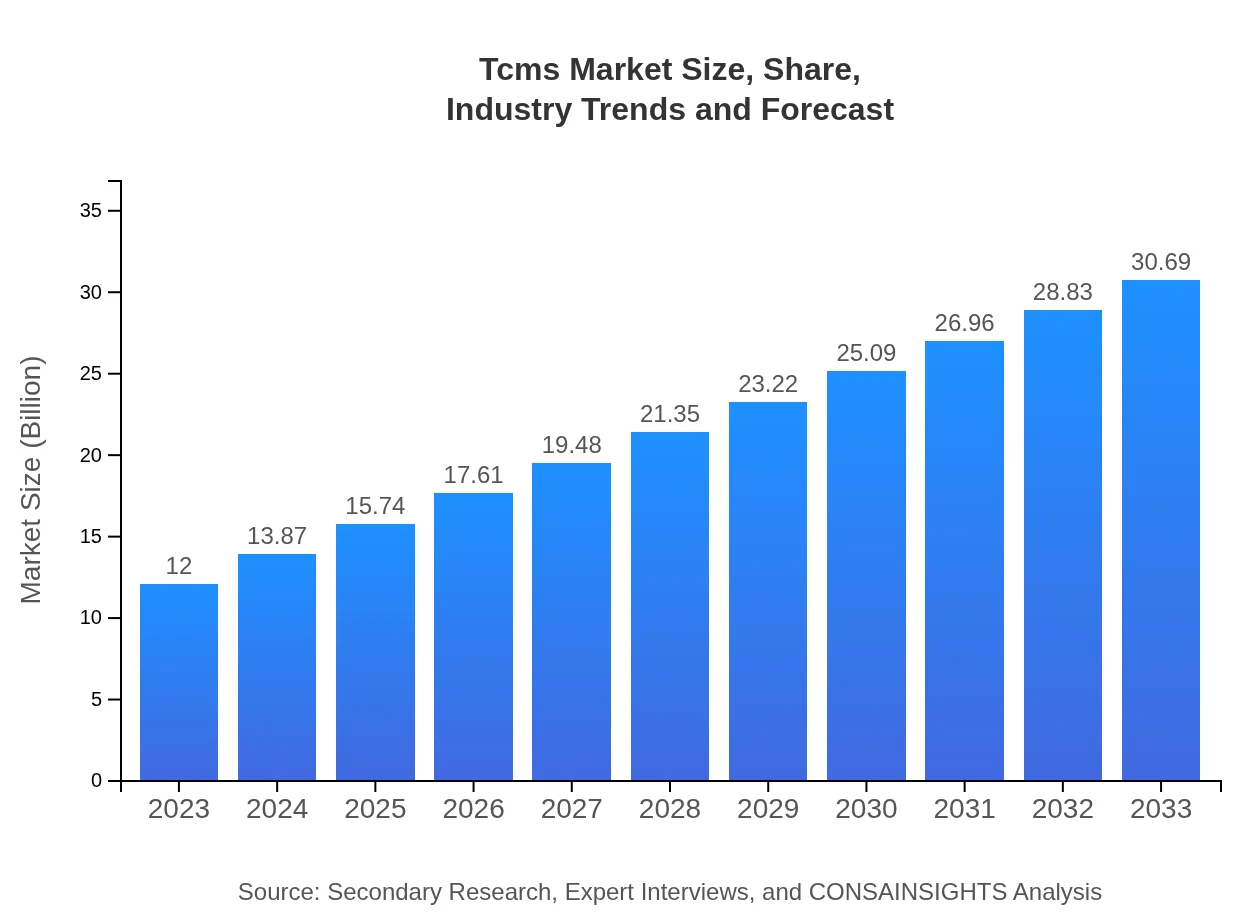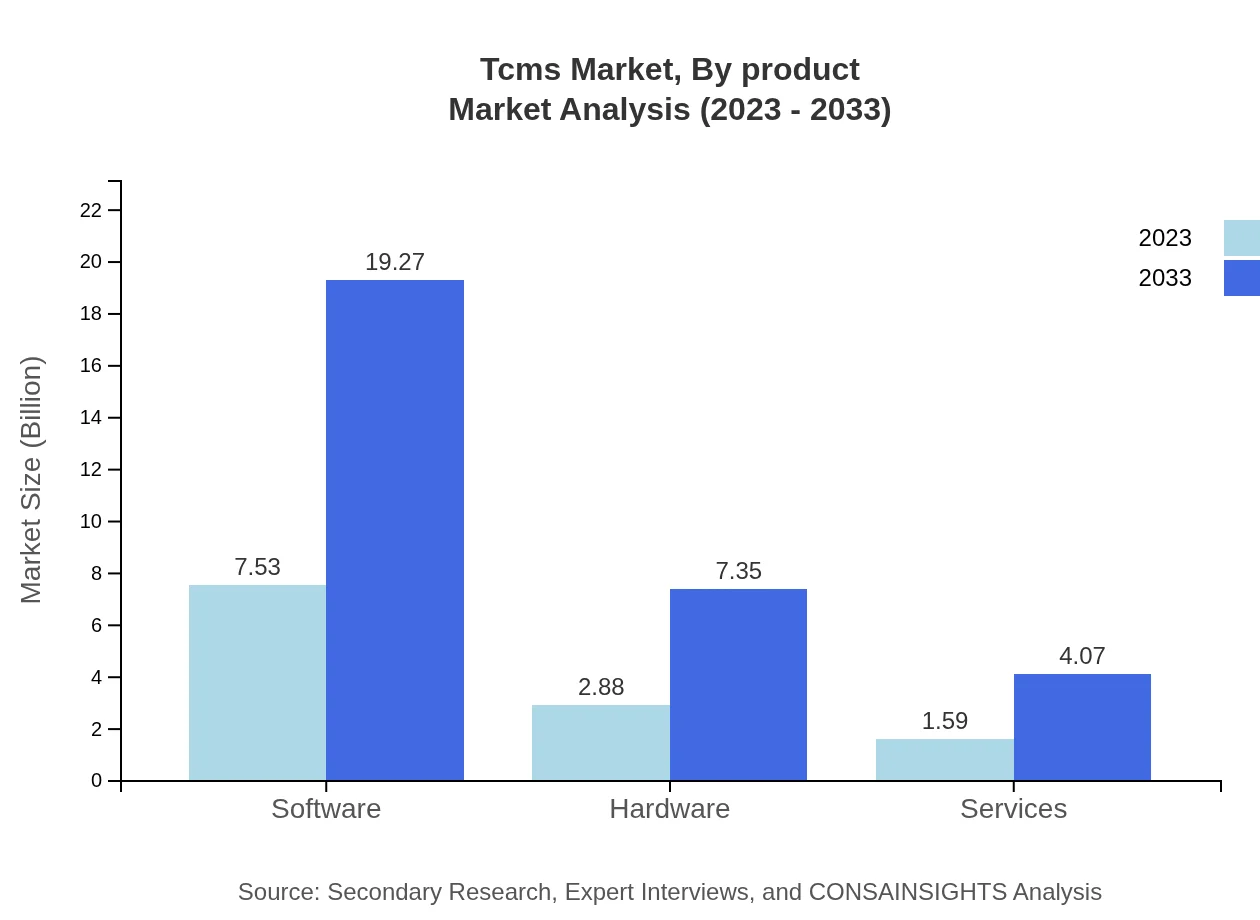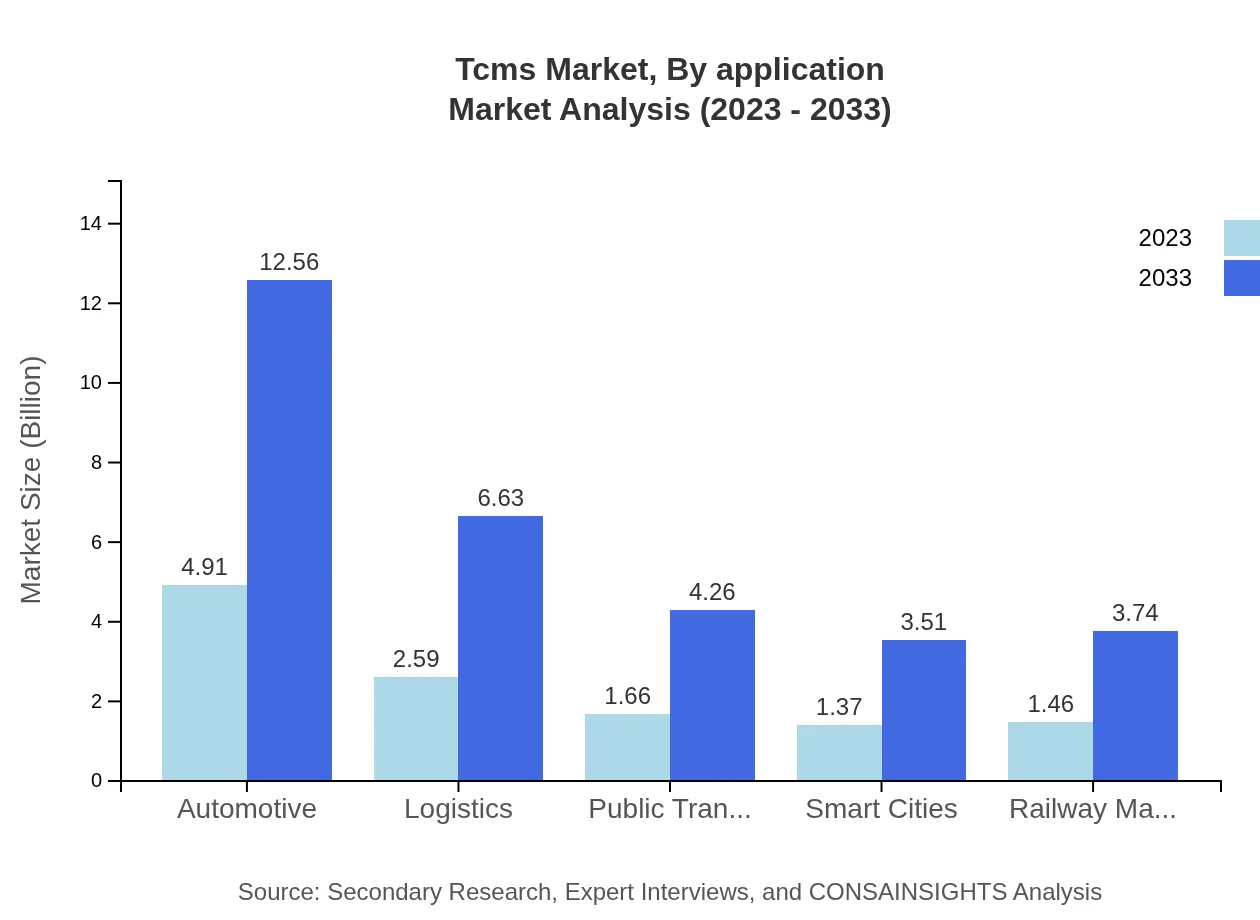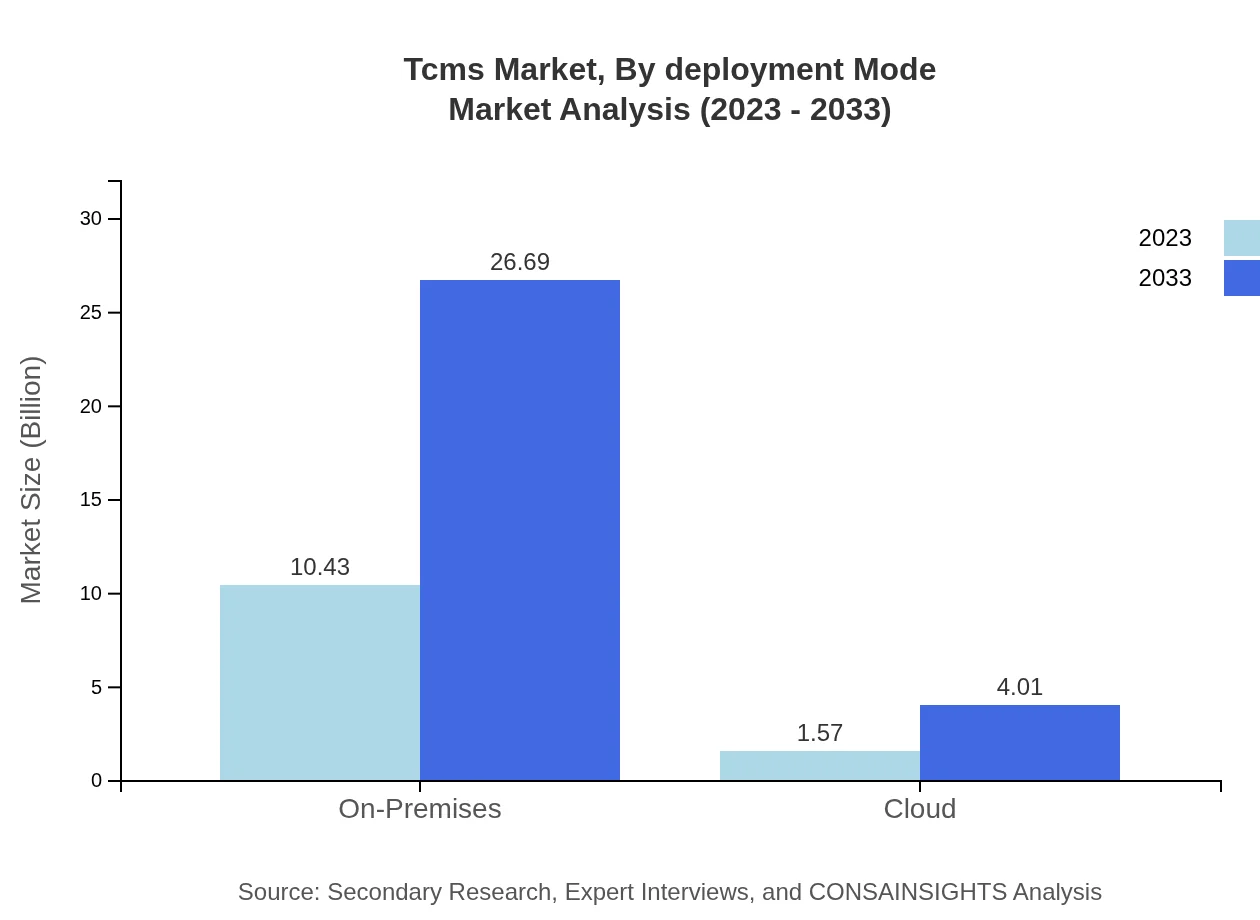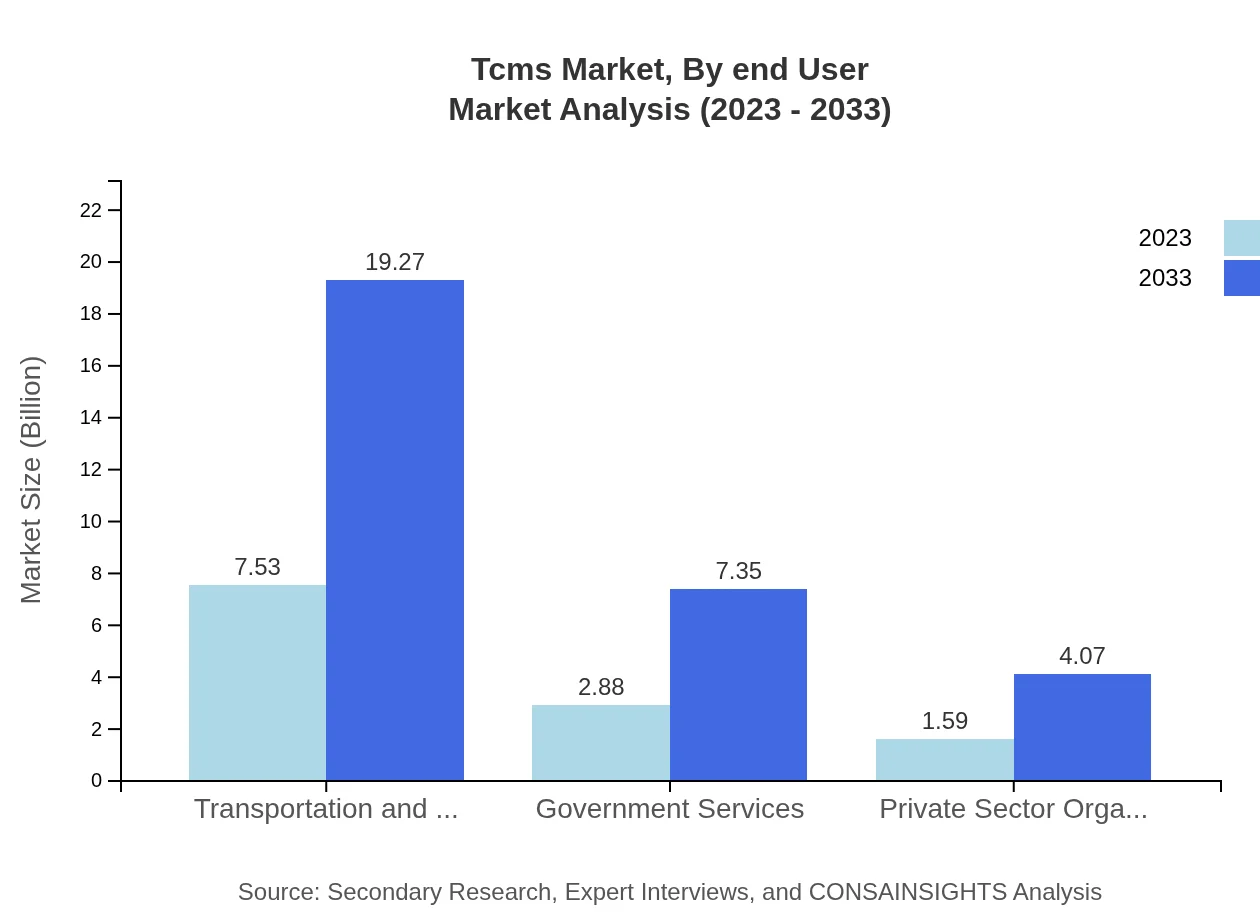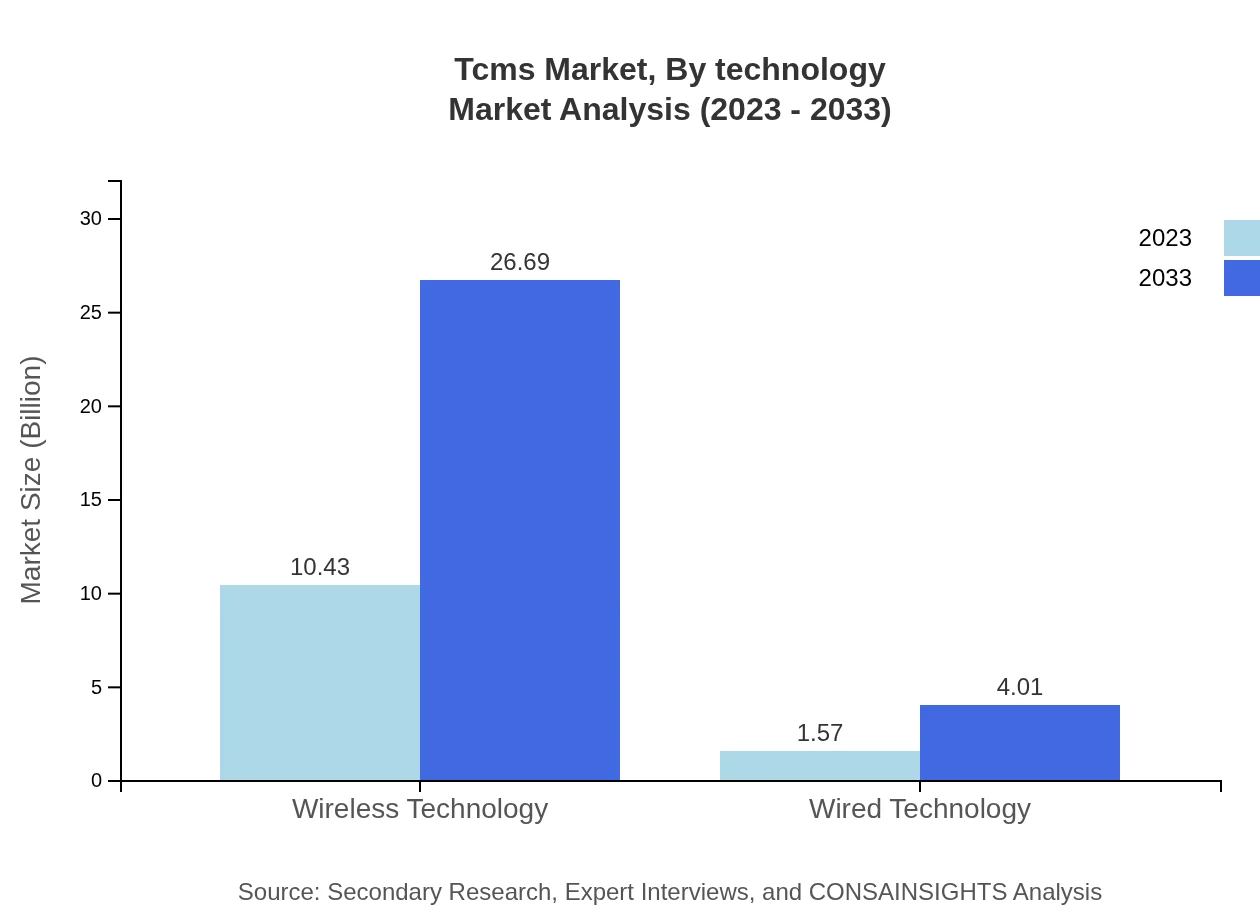Tcms Market Report
Published Date: 02 February 2026 | Report Code: tcms
Tcms Market Size, Share, Industry Trends and Forecast to 2033
This report presents an in-depth analysis of the Tcms market from 2023 to 2033, providing insights on market size, growth trends, segmentation, and key players, as well as regional dynamics and technological advancements impacting the industry.
| Metric | Value |
|---|---|
| Study Period | 2023 - 2033 |
| 2023 Market Size | $12.00 Billion |
| CAGR (2023-2033) | 9.5% |
| 2033 Market Size | $30.69 Billion |
| Top Companies | Siemens AG, Toshiba Infrastructure Systems & Solutions Corporation, Schneider Electric, Cisco Systems, Inc. |
| Last Modified Date | 02 February 2026 |
Tcms Market Overview
Customize Tcms Market Report market research report
- ✔ Get in-depth analysis of Tcms market size, growth, and forecasts.
- ✔ Understand Tcms's regional dynamics and industry-specific trends.
- ✔ Identify potential applications, end-user demand, and growth segments in Tcms
What is the Market Size & CAGR of Tcms market in 2023?
Tcms Industry Analysis
Tcms Market Segmentation and Scope
Tell us your focus area and get a customized research report.
Tcms Market Analysis Report by Region
Europe Tcms Market Report:
The European Tcms market is projected to witness growth from $3.18 billion in 2023 to $8.14 billion by 2033, with strong emphasis on sustainability, smart mobility initiatives, and robust regulations supporting digital transformations in transportation.Asia Pacific Tcms Market Report:
The Asia Pacific Tcms market is projected to grow from $2.32 billion in 2023 to $5.92 billion by 2033, driven by rapid urbanization and infrastructure development in countries like China and India. The increasing adoption of smart transportation solutions and government initiatives towards digitization further bolster market growth in the region.North America Tcms Market Report:
North America, valued at $4.59 billion in 2023, is anticipated to reach $11.74 billion by 2033. The key drivers include a strong push for smart city development and robust investments in technological innovations for transportation systems to enhance safety and efficiency.South America Tcms Market Report:
In South America, the Tcms market is expected to increase from $1.19 billion in 2023 to $3.04 billion by 2033. Factors contributing to this growth include the rise in logistics sector demands and investments in public transportation improvements driven by urban expansion.Middle East & Africa Tcms Market Report:
The Middle East and Africa's Tcms market is expected to grow from $0.72 billion in 2023 to $1.85 billion by 2033. Increasing trends towards urbanization and rising government spending on infrastructural development are expected to enhance market prospects in this region.Tell us your focus area and get a customized research report.
Tcms Market Analysis By Product
In terms of product segmentation, software represents the largest segment with a market size of $7.53 billion in 2023, projected to grow to $19.27 billion by 2033. Hardware and services play substantial roles too, valued at $2.88 billion and $1.59 billion in 2023, respectively. The focus on Wireless Technology, which accounts for 86.94% of the market share in 2023, underscores the importance of connectivity and real-time data in Tcms.
Tcms Market Analysis By Application
The transportation and logistics application segment holds a significant share of the market, amounting to $7.53 billion in 2023 and projected to reach $19.27 billion by 2033. Other critical applications include government services, automotive, and public transportation, which are essential for enhancing operational efficiencies and user experiences.
Tcms Market Analysis By Deployment Mode
On-premises solutions dominate the deployment mode landscape with a market size of $10.43 billion in 2023, expected to escalate to $26.69 billion by 2033. However, cloud deployments are increasing due to their scalability and cost-effectiveness, signaling a significant transition towards cloud-based solutions.
Tcms Market Analysis By End User
End-users in the TCMS sector are categorized broadly into government services and private sector organizations. Government services represent 23.96% of the market share with a substantial value of $2.88 billion in 2023, projected to rise to $7.35 billion by 2033. Private sector organizations also show significant growth potential, driven by increased investments in transport technology.
Tcms Market Analysis By Technology
The technology segment highlights cloud technology as a fundamental enabler of data analysis and real-time decision-making. It is anticipated to expand from $1.57 billion in 2023 to $4.01 billion by 2033, marking an increasing preference for cloud-based services among industry players.
Tcms Market Trends and Future Forecast
Tell us your focus area and get a customized research report.
Global Market Leaders and Top Companies in TCMS Industry
Siemens AG:
Siemens AG is a global powerhouse focusing on digitalization in the transportation sector, delivering integrated Tcms solutions that enhance efficiency and sustainability.Toshiba Infrastructure Systems & Solutions Corporation:
Toshiba specializes in advanced transportation management systems, contributing significantly to innovations in smart mobility and transportation networks worldwide.Schneider Electric:
Offering comprehensive solutions for smart transportation systems, Schneider Electric focuses on energy efficiency and reliable connectivity in Tcms.Cisco Systems, Inc.:
Cisco is known for its robust networking solutions that are integral to the development of smart transportation and communication systems.We're grateful to work with incredible clients.









FAQs
What is the market size of TCMS?
The global TCMS market is valued at approximately $12 billion in 2023, with a sustainable compound annual growth rate (CAGR) of 9.5%, projected to reach significant heights by 2033.
What are the key market players or companies in this TCMS industry?
Key players in the TCMS market typically include leading technology firms, system integrators, and service providers that specialize in rail management and control systems, contributing notably to innovations in the sector.
What are the primary factors driving the growth in the TCMS industry?
Growth in the TCMS industry is driven by advancements in technology, increasing demand for efficient transportation systems, urbanization trends, and regulatory push for smart city initiatives that enhance mobility and connectivity.
Which region is the fastest Growing in the TCMS?
The TCMS market in Europe is growing rapidly, with size projections increasing from $3.18 billion in 2023 to $8.14 billion by 2033, making it a leading region for TCMS development.
Does ConsaInsights provide customized market report data for the TCMS industry?
Yes, ConsaInsights offers customized market report data tailored to client needs within the TCMS industry, providing in-depth insights and analysis on specific segments or regions.
What deliverables can I expect from this TCMS market research project?
Deliverables from the TCMS market research project include comprehensive reports containing market size data, competitive analysis, forecasts, and segment-specific insights to facilitate strategic planning.
What are the market trends of TCMS?
Current market trends in TCMS include the integration of IoT technologies, a focus on sustainable transportation, and an increase in smart transportation systems that optimize operational efficiency and improve user experience.

